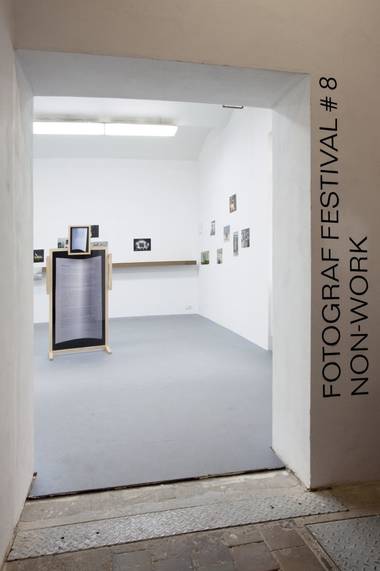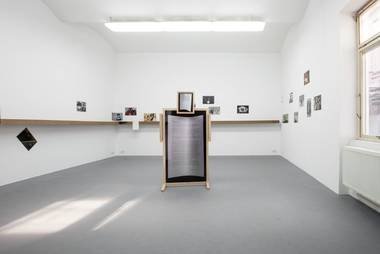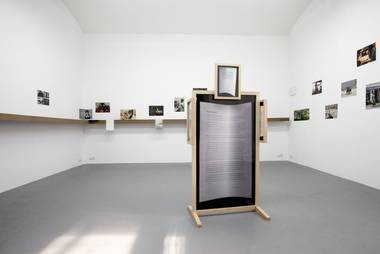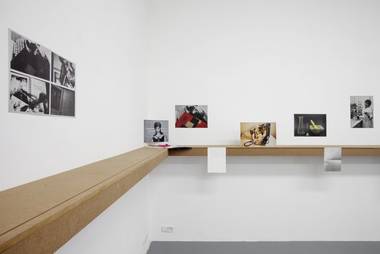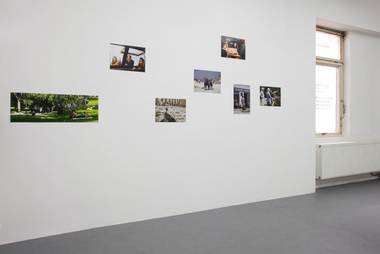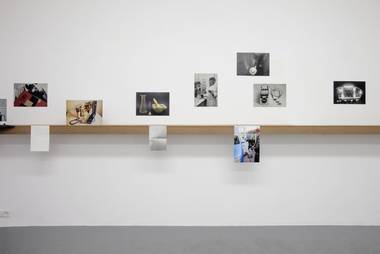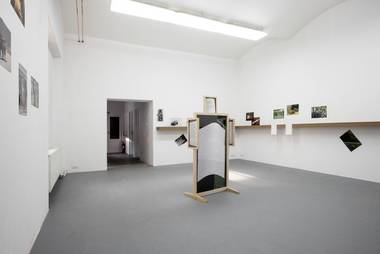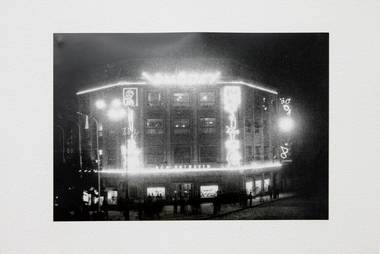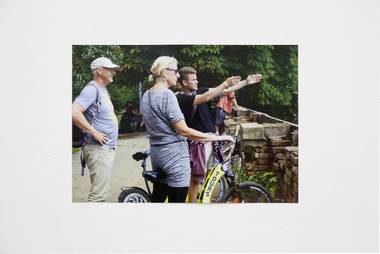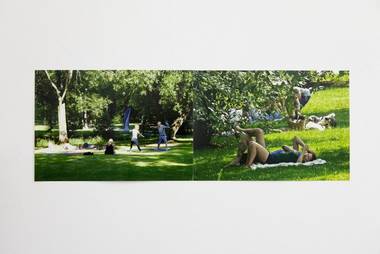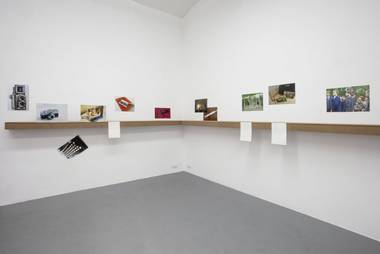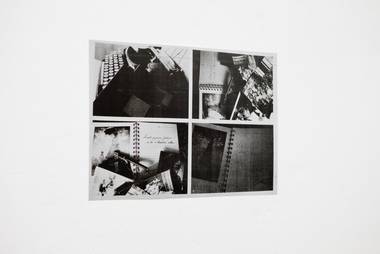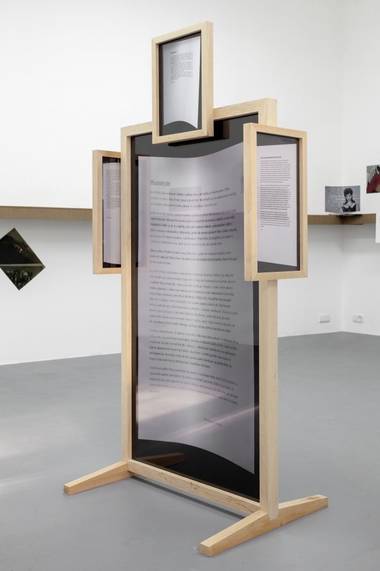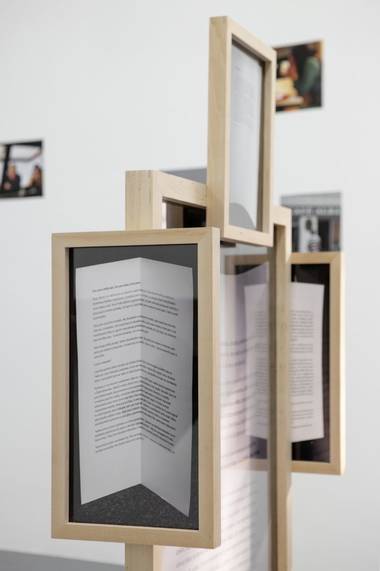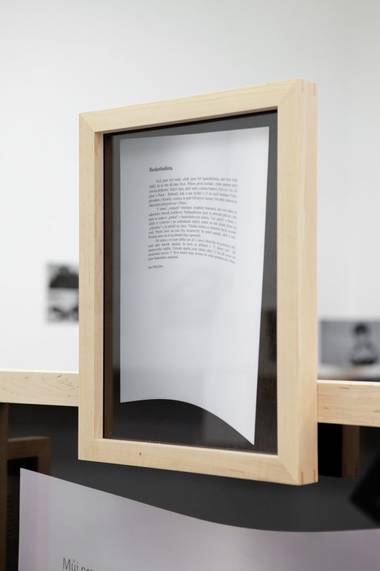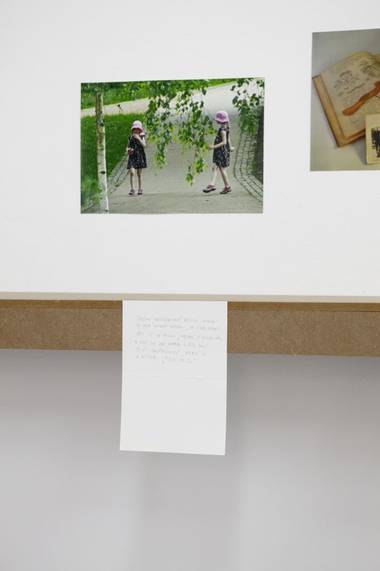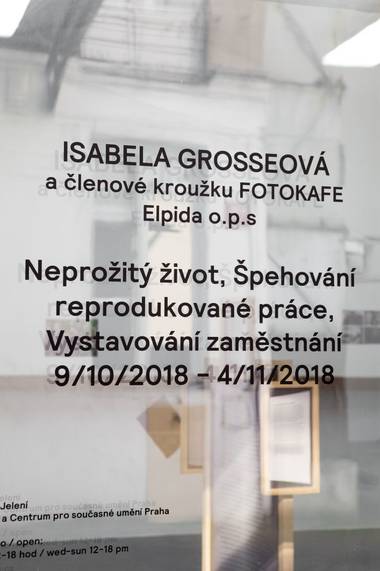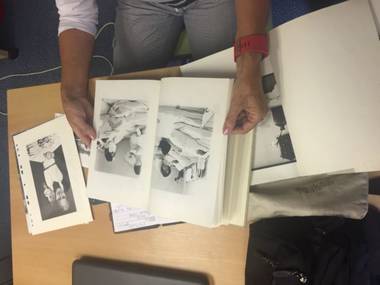Isabela Grosseová and members of the photo club Fotokafe:
An Unlived Life; Spying on Reproduced Work; Exhibiting Employment
October 9 – November 4, 2018
opening: October 8, 2018 from 6PM
The exhibition takes palce within the Fotograf Festival #8
curator: Isabela Grosseová
How this exhibition originated
Exhibition is part of Fotograf Festival, and is reflecting on the topic of boundary between work and free time.
The exhibition is the outcome of the collaboration between a group of seniors and the organization Elpida o. p. s. Elpida is an organization that implements long-term projects to support the active life of seniors, and based on invitation of Fotograf Festival was given the opportunity to present their work.
Elpida’s choir is participating in the opening of the exhibition and the Photographs and texts originated as a part of Elpida’s photo workshop – Fotokafe.
Fotokafe’s instructor Pavla Pražáková also contributed to the exhibition with her influence – helping hand, as did Elpida’s director Jan Bartoš who participated in the first few group meetings.
What you see in the exhibition
Photographs that were installed as a part of the performative workshop together with the seniors. I engaged conceptually with the gallery space and added several elements that seems important and emerged from the overall dynamics of our collaboration. One of these elements is a shelf that is the dictionary of my experience “the helping hand” and the spatial figure from framed photographs making up the “method refusal”. Both of these elements are a part of a more elaborate 10-point dictionary of notions expressing “elements of friction” that we had to cope with and confront during the workshops and meetings.
I introduced the following topics in this already organic process in exhibition preparation:
The first was about an unfulfilled life – what everyone wanted to be when they grew up, what they studied and what they could not pursue in life. What remained only as a hobby or an unimplemented vision.
The second task for the seniors was to imagine that they are a person one generation younger and write a short description of this person, and later, in another step take a photograph of someone who fits their description but does not know he/she is being photographed.
The same process was to be repeated with a two generations younger person.
In this exhibition, I decided to include also photographs that originated independently on the suggestion of the instructor of Fotokafe’s course. It is the motif of a still-life with instruments used in previous jobs, old photographs from their previous work environment when they were young and a photograph “message to the younger generation”.
10 Elements of Friction
A. Task
The way it was necessary to collaborate. I put together the task that I sent to Elpida’s director and Fotokafe’s course instructor which was reformulated and forwarded to the members.
B. Ageism
I have to admit that I succumbed to the so much criticized notion of ageism in my approach to the project. I underestimated the overall concept readiness and I did not prepare a plan in advance how I would conceive my participation at the exhibition. It appeared that the topic of work and non-work of the Festival Fotograf 8 is accepted without any exceptional interest. I am attributing this to the fact that in the retirement age the line between work and free time is no longer current, or that free time after the period of full time work is rather an existential topic. On one hand, there is the advantage of being able to treat free time in a liberal way; and on the other hand there is the handicap of a certain nonconformity thanks to which senior citizens are excluded from society. What it means to have potential stands beside inability, handicap and disablement. There are many forms of exclusion from active social life. “What we institutionalize for the unemployed, the retired, or in school, are controlled "situations of abandonment". For these, the handicapped are the model” writes Gilles Deleuze in his book May 68 Did Not Take Place.
C. Resistance
The topics that I articulated in the group were not fully accepted. Defiance was practically for the entire time of the preparation of the exhibition and working on the topic strong emotional background of our discussions. Why didn’t I cancel our collaboration then? The reason was that I perceived the process and dynamics of the group as portative. What can we learn together from an experience that is not completely positive? How can we work with this experience? In a way it seemed that the defiance was a stronger motivator and challenge than if the process was fluent without any twists and hardships.
D. Unlived Life, Missing out in Process
Similarly to my plan to be a singer and the reality where I am a medical doctor is an unfulfilled dream about what I wanted to pursue, the compromise in preparing the exhibition is an unfulfilled format of this process.
E. Method Refusal. Instructor
I originally imagined an equal platform where the way to capture the topic of the festival would originate from discussions and common contemplation. As it turned out, however, the more acceptable method would be the role of a “second instructor” who is able to hand over his/her competence.
F. Incomprehension as Weapon
G. Helping Hand
The effect of a helping hand in communication between me and the seniors from Elpida’s side significantly influenced the process of preparing the exhibition. Therefore, I articulated the motif of a helping hand in the area of the gallery as a shelf running through three sides of the room. The shelf separates the wall in a horizontal line, enables a specific type of supporting structure, which some of the photographs were leaning on or coming out of the wall and entering the space.
H. Fear of Failure
Huge motivation for me was the fear of failing in the sense that I would not be able to work with the group of senior citizens. That is why it was not easy to give up on the project after the initial difficulties.
I. Surface
The task of writing short essays was supposed to evoke the atmosphere that would support the actual photographing. If I spend time imagining that I am 25 years younger and describe one entire day of my life, then I will go and capture this situation in a photograph after a clear experience that is realistic in the image. Since this method was refused, it is not possible to determine what influence the sensitivity gained from writing would have.
J. Out of Focus
I perceive the ambiguity and unclearness of the approach to the topic of non-work and the fact that I did not prevent this unclearness to be out of focus. As a strategy, I rather welcomed it.
The program of the Jeleni Gallery is possible through kind support of Ministry of Culture of the Czech Republic, Prague City Council, State Fund of Culture of the Czech Republic, City District Prague 7
Media support: ArtMap, jlbjlt.net and UMA: You Make Art
